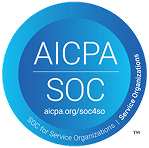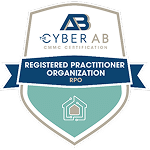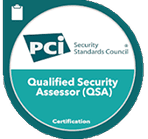A cybersecurity framework establishes a universal language and standardized set of guidelines enabling security leaders to comprehend their security positions and those of their vendors,
Here are six cybersecurity frameworks and the industries they were designed to support.
NIST (National Institute of Standards and Technology)
The NIST framework provides a set of guidelines for organizations to assess and improve their cybersecurity posture, regardless of industry, to enhance security and resilience against cyber threats.
Industries served by NIST framework
NIST plays a critical role in setting standards and guidelines that are applicable across various industries including:
- Cybersecurity
- Information Technology (IT)
- Healthcare
- Finance
- Manufacturing
- Energy
- Telecommunications
- Government
ISO (International Organization for Standardization)
ISO standards are not industry-specific, but are applicable to a wide range of industries globally. These standards cover various aspects such as quality management, information security, environmental management, and more. ISO standards help organizations improve their processes, ensure product and service quality, enhance safety, and achieve compliance with regulatory requirements.
Industries served by the ISO framework
Here are some industries and sectors that commonly adopt ISO standards:
- Manufacturing
- IT and cybersecurity
- Healthcare
- Environment management
- Automotive
- Food and beverage
- Aerospace and defense
- Energy
- Construction and engineering
- Finance and banking
- Oil and gas
- Education
- Public sector
- Transportation and logistics
SOC (System and Organization Controls)
The SOC framework, particularly SOC 1 and SOC 2 reports, are relevant to a wide range of industries. While the specific need for SOC reports can vary, they are generally valuable for organizations that provide services and handle sensitive data as well as those that want to assure clients, customers, and partners of their security and control measures.
Industries supported by the SOC framework
- Technology and cloud services
- Software as a service (SaaS) companies
- Managed service providers
- Data centers and hosting
- Finance and banking
- Payment processors
- Insurance companies
- Healthcare
- Legal services
- Outsourcing and business process services
- Print mail
- Education
- Real estate
- Retail and e-commerce
- Government contractors
- Nonprofits
HITRUST (Health Information Trust Alliance)
The HITRUST Common Security Framework (CSF) is crucial for the healthcare industry and its related sectors, yet it is industry agnostic because it also works for industries that indirectly support healthcare. HITRUST CSF is specifically designed to address the unique cybersecurity, privacy, and compliance needs of organizations that handle sensitive health information and electronic health records.
Industries served by the HITRUST CSF certification
- Healthcare providers
- Health insurance
- Healthcare tech
- Pharmaceutical
- Medical device manufacturers
- Telehealth services
- Hospitality
- Utilities
- Finance
- Retail
- IT
PCI DSS (Payment Card Industry Data Security Standard)
The PCI DSS framework ensures the security of payment card information to prevent credit card fraud and data breaches as these industries handle vast amounts of cardholder data.
Industries served by the PCI DSS framework
PCI DSS compliance is necessary in industries that handle credit card transactions including:
- Retail
- Hospitality
- E-commerce
- Finance and banking
- Service providers
CMMC (Cybersecurity Maturity Model Certification)
The CMMC is a framework developed by the United States Department of Defense (DoD) to enhance cybersecurity practices of defense contractors and subcontractors. CMMC is specifically designed for organizations that work with the DoD and handle Controlled Unclassified Information (CUI).
Industries served by the CMMC framework
- Defense contractors
- Aerospace and defense
- IT
- Research and development
- Manufacturers
- Engineering firms
- Logistics and supply chain








